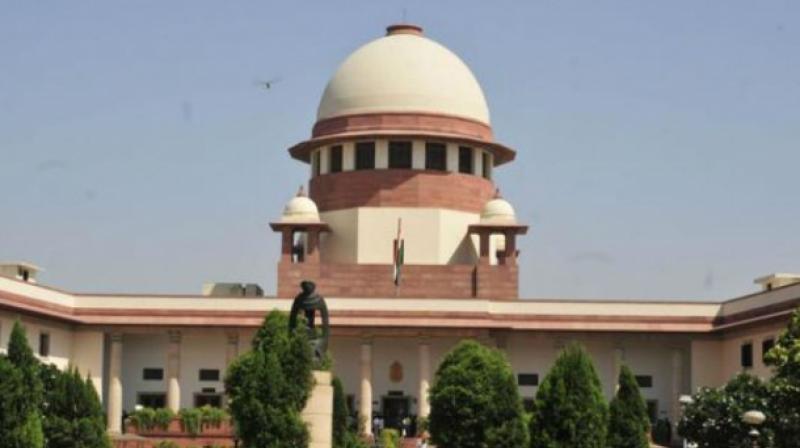After triple talaq, Supreme Court to examine polygamy
Section 2 of Muslim Personal Law violative, say petitioners.

New Delhi: Within months of the Supreme Court striking down triple talaq as unconstitutional, a Constitution Bench of the top court will look into the legal and constitutional validity of the prevalent practices of polygamy and nikah-halala among Muslims.
A three-judge bench, headed by Chief Justice Dipak Misra, while issuing a notice to the Centre on four petitions filed by Sameena Begum of Delhi, BJP leader and social activist Ashiwini Kumar Upadhyaya and two others, referred the matter for adjudication by a Constitution Bench.
Polygamy allows a Muslim man to have four wives. Under Islamic jurisprudence, men are permitted, under specific circumstances, to marry up to four wives at one time. Islamic law states that a man can marry more than one woman if he has the financial resources to maintain all wives and their children and behave with complete justice and no favouritism to all. It is not mandatory, but permissible for those who can afford it. Polyandry, the practice where a woman can have more than one husband, is not permissible.
Islamic law says that a Muslim man can divorce and remarry the same woman twice. However, if the marriage is dissolved for the third time, it will only be “halal” for both to remarry after the wife first marries another man, consummates the marriage and if the other man willingly divorces her or dies. If any step of this process is not observed, the halala is not valid.
While agreeing to take up the matter, the bench, which also comprised Justices A.M. Kanwilkar and D.Y. Chandrachud, considered the submission that an earlier five-judge constitution bench, in its August 22, 2017 verdict, had kept open the issue of polygamy and nikah-halala while quashing triple talaq.
The petitioners sought a declaration that Section 2 of the Muslim Personal Law (Shariat) Application Act, 1937, is unconstitutional and violative of Articles 14, 15 and 21 of the Constitution insofar as it seeks to recognise and validate the practice of polygamy and nikah-halala. The bench sought the response of the Centre on the petitions.

